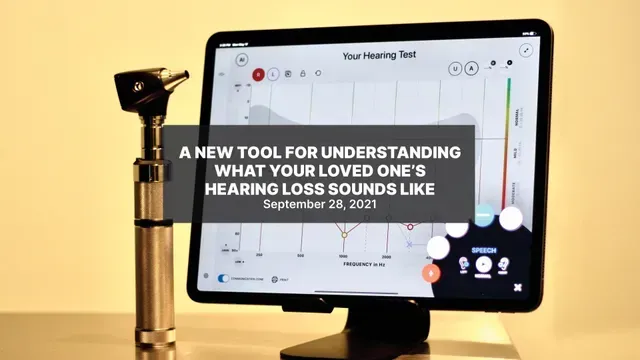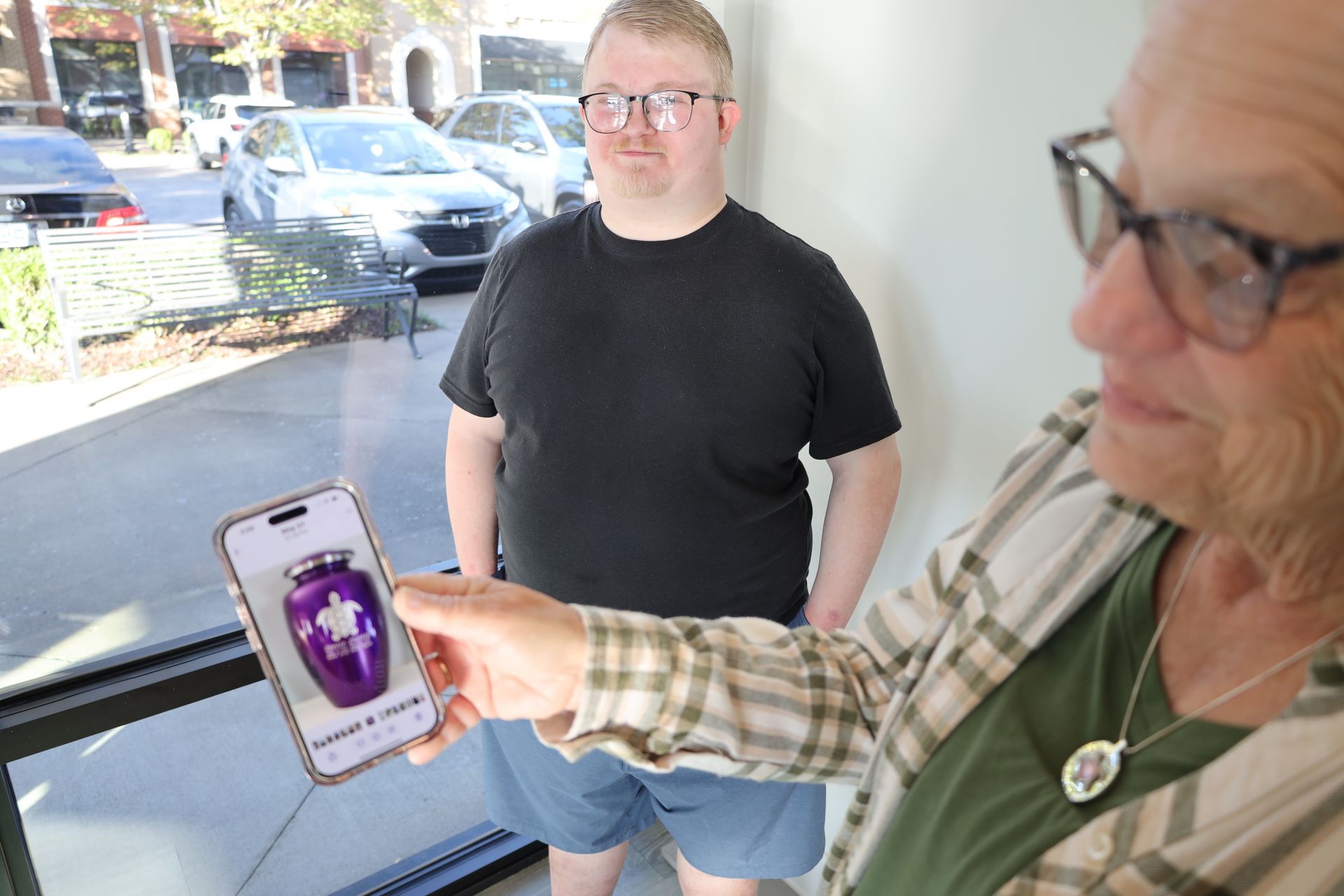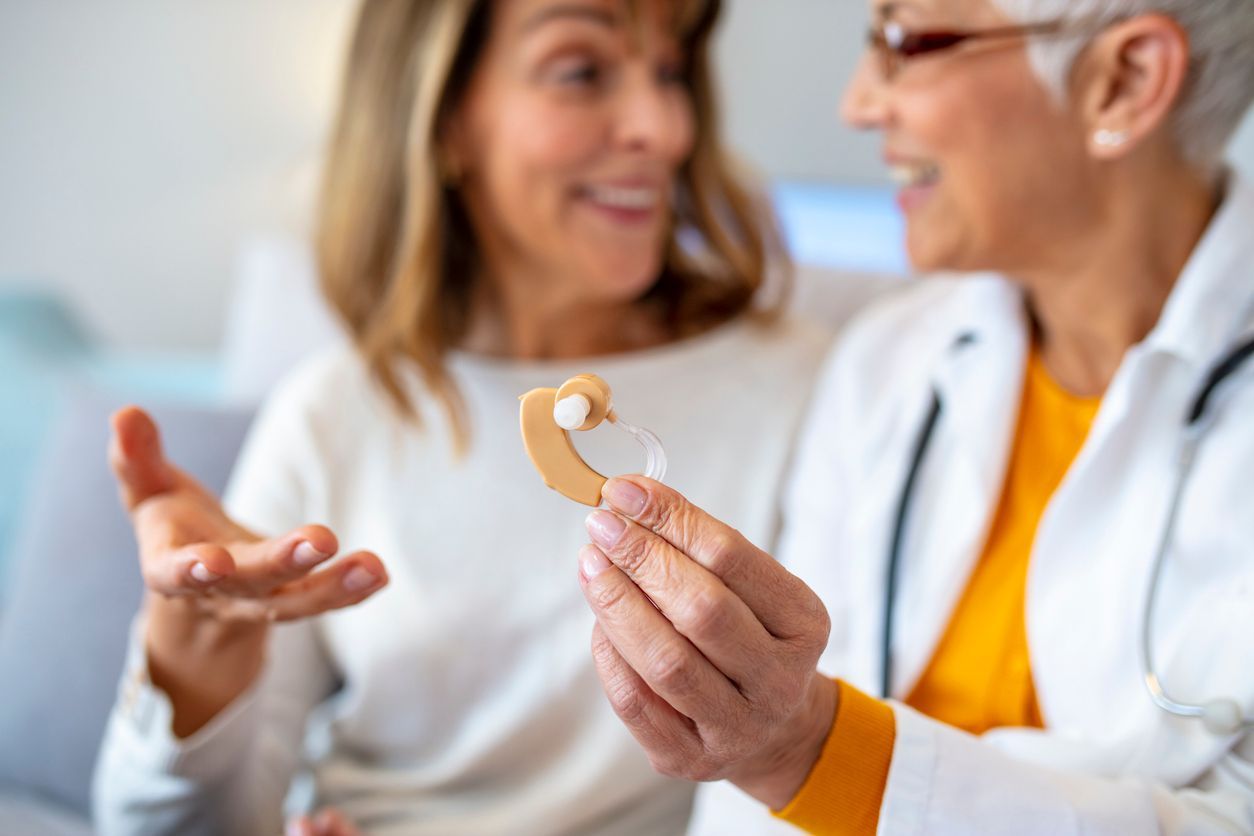HearVu: A New Tool for Understanding Hearing Loss
HearVu Brings Hearing Loss to Life for Patients and Families

“When I first meet a new patient, I spend time getting to know them and drawing out how they would answer this question: Is hearing optional or a necessity?” said Dr. Megan Johnson, audiologist and owner of Johnson Audiology. “That gives me insight into how ready the person is to embrace that they have hearing loss and begin the journey to healthy hearing. Over the course of my 18-year career as an audiologist, I’ve learned that those who are primed and ready to address their hearing loss are the ones who will be the most successful with hearing aids.”
How important is your hearing?
Humans have five basic senses: sight, hearing, touch, smell, and taste. Eyesight provides the most information to the brain at roughly 10 million bits per second, which is similar to an Ethernet connection. The second most information-rich sense is hearing, with your ears not only in charge of transmitting sounds to the brain but also in controlling your body’s balance and equilibrium. Notably, your vision and hearing work closely together, allowing you to target where sounds are coming from; therefore, both those senses need to be in good working order.
With vision problems, most people quickly address the health issue and get glasses. “By contrast, people wait up to 10 years from the time they first notice hearing loss,” Dr. Johnson said. “I encourage people to begin assigning hearing its proper place of importance. Addressing hearing loss should be a health necessity, not something you finally seek help for when the loss is severe.”
Here are some good reasons why hearing should be a health priority.
Healthy hearing can keep your brain active and functioning
You know the adage “use it or lose it” applied to keeping your heart and muscles healthy. The same applies to your brain. Hearing is a function of your ears and your brain working together to process sound. Failing to treat hearing loss results in auditory deprivation. Over time, the parts of your brain responsible for hearing can shrink—or atrophy—from lack of use. This tissue loss changes your brain’s structure and puts a person at higher risk for dementia-related disorders like Alzheimer’s. Over the course of a 12-year study, Johns Hopkins’ researchers tracked 639 people and found that mild hearing loss doubled dementia risk. Moderate loss tripled risk, and people with a severe hearing impairment were five times more likely to develop dementia.
Healthy hearing can lead to more career opportunities
Various studies over many years have shown that severe to profound hearing loss has a tremendous impact on a person’s education and employment success. Why? Hearing well in an educational or work setting makes it possible to detect and recognize meaningful sounds around you, to identify the source and location of a sound, and, most important, to understand spoken language. For example, in a large work meeting, a person with hearing loss may struggle to hear instructions or to be a part of the dialog. They may miss out on being a part of the exchange of ideas and problem solving that is occurring, putting them at a disadvantage compared to workmates with typical hearing. This can translate into lower wages and less advancement potential. Statistically, a person with untreated hearing loss makes 25% less than a person without hearing loss. Here is the good news: treating hearing loss by wearing hearing aids and using other assistive devices can reverse those negative impacts, reducing the risk of income loss by up to 100% for those with milder hearing loss and up to 77% for those with moderate to severe hearing loss.
Healthy hearing can mean greater physical safety
In a very practical way, healthy hearing can mean greater physical safety as a person who hears well will respond appropriately when they hear, for example, a car beeping a warning in traffic, an ambulance approaching across a busy city street or a fire alarm sounding.
Additionally, since balance and equilibrium are controlled by your inner ear, hearing impairment upsets the normal workings of that body system. A person with even mild hearing loss is three times more likely to have a history of falling than someone who has addressed hearing loss. Falls can have a domino effect, leading to hospitalizations, stays in a short- or long-term care facility and a potential loss of independence.
Healthy hearing can mean more energy
When a person struggles to hear, the brain is taxed. The term listening fatigue has been coined to describe the process. Imagine this example: A person with hearing loss is at a large family gathering. The intense concentration needed to decipher many voices and noises coming from different directions is mentally exhausting. Rather than leaving the party refreshed and uplifted from the time spent with loved ones, a person feels as if he or she has run a marathon.
Healthy hearing can keep you connected and mentally thriving
Humans are social beings, and most people are happiest when they are communicating and connected with others. Hearing loss, on the other hand, can lead to social isolation as the listening fatigue mentioned earlier begins to affect the person’s willingness to continually struggle to hear conversation. As the isolation mounts, studies have shown that adults 50 and older with untreated hearing loss are more likely to report depression, anxiety, anger, frustration, and paranoia compared to those with typical hearing or those who wear hearing aids.
A new tool benefitting Johnson Audiology patients and family members
Dr. Johnson also mentioned a second question she asks new patients: Do you have a strong support system? “I’ve learned that a patient’s success drastically improves when a strong circle of friends, family and/or workmates are aware of the person’s hearing loss and are motivated to offer understanding and encouragement as the person adjusts to their new hearing aids,” she said. With this in mind, Dr. Johnson recently invested in a new technology tool for the practice that helps patients better understand their own hearing loss and gives family members and friends the chance to hear for themselves what their loved one’s hearing loss sounds like. Called HearVu, this groundbreaking, tablet-based software program allows Dr. Johnson to interactively plot a person’s hearing loss on a digital display. Dr. Johnson said, “In the past, we have always shown patients and family members the hearing test results, called an audiogram, on paper. It was a static representation of the patient’s hearing loss. HearVu really brings an audiogram to life in the way a paper audiogram doesn’t.” The software also contains video animations of the ear so Dr. Johnson can visually explain how sound travels through the ear and how damage to the ear’s structure can lead to hearing loss. One of the most exciting components of HearVu is a program that takes a person’s individual hearing test results and presents spoken sentences that mimic what speech sounds like for that person. “It can be eye and ear opening for a family member who never fully grasped how much their loved one was struggling to hear,” she said. The experience helps the person with hearing loss feel validated for seeking help and builds empathy from family members to be supportive. “It’s one more way to help people understand that hearing is a necessity not optional,” she concluded.
Take the next step
Take the next step to healthy hearing for you or a loved by calling Johnson Audiology today to make an appointment for a diagnostic hearing exam and ask your audiologist to use the HearVu program to better explain your hearing loss. Hearing well makes life better in far-reaching ways so vow now to make it a necessity rather than an option.
Recent Posts



